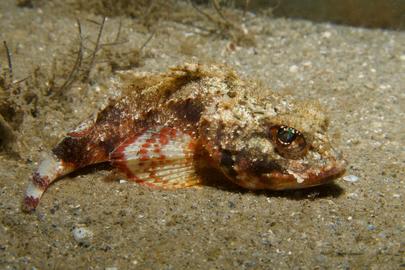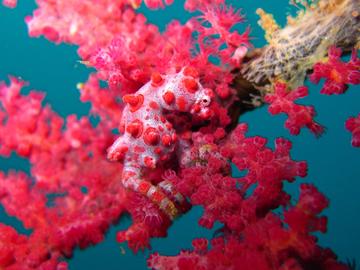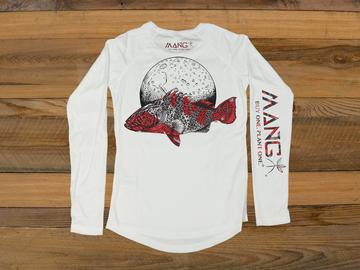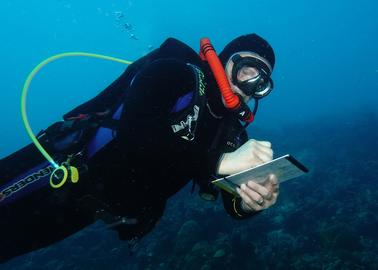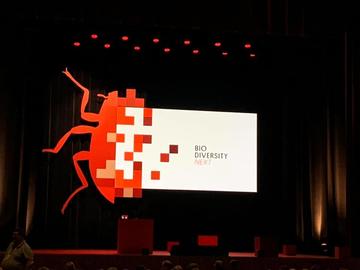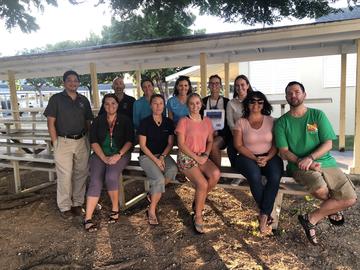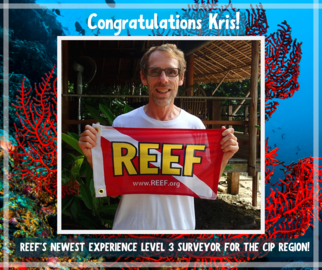Blue Heron Bridge (BHB) is a popular shore diving site located in West Palm Beach, Florida, just a two-and-a-half-hour drive from the REEF Campus in Key Largo. Voted one of the top dive sites in the world by Sport Diver in 2013, this area is well-known among divers for its abundance of unusual and interesting marine life. Because of the tidal currents in the area, one can only dive BHB at slack high tide when there is minimal current.
We are gearing up for our 2020 Field Survey Trip season, and it's bound to be a great year of REEF Trips to fantastic dive locations all over the world. We'll begin the year in Fiji aboard the fabulous NAI'A liveboard, followed by a trip to tiny Caribbean island of St. Eustatius in March. Both of these trips (as well as several others) are already sold out, but we still have limited space remaining on a handful of other Field Survey Trips next year. Spaces are filling fast, so if you'd like to join a Dive Vacation That Counts, we strongly suggest signing up as soon as possible.
This month, REEF is pleased to partner with MANG, an environmental apparel brand, to raise awareness for the Grouper Moon Project. MANG has created a special Grouper Moon shirt design, and 10% of the proceeds from the sale of this shirt during December will go towards supporting the Grouper Moon Project. As part of their commitment to conservation, MANG also plants one mangrove for every product sold.
REEF members are the heart of our grassroots marine conservation programs. A diverse community of divers, snorkelers, and ocean enthusiasts support our mission to conserve marine environments worldwide.
Earlier this fall, REEF's Director of Science, Christy Pattengill-Semmens, attended the Biodiversity_Next conference in the Netherlands, joining over 700 other participants from 76 countries. The conference brought together major international organizations, research scientists, and policy makers to jointly identify "socio-technical bottlenecks and horizon-scan opportunities around data-intensive biodiversity and geodiversity research". Put more simply, building a global infrastructure for biodiversity data.
In November 2019, REEF and the Cayman Islands Department of the Environment (DOE) presented Grouper Education Program teacher workshops on Grand Cayman and Cayman Brac in the Cayman Islands. The workshops, led by Grouper Moon educator, Todd Bohannon, and Bradley Johnson from DOE, provided educators with a marine science curriculum based on the Grouper Moon Project for intermediate/elementary and high school students.
Our Volunteer Fish Survey Project has some enthusiastic surveyors who have moved up a level this month. All REEF members are Level 1 by default, so Experience Level 2 is really the first step toward learning fish identification in our various regions. This month's advancements almost entirely consist of new Level 2 surveyors! Those advancing came from:
The new "Taking Stock" blog series discusses past research supported by the Lenfest Ocean Program and asks how it has informed marine policy and management. This article discusses the Grouper Moon Project.
REEF Trips Program and Communications Manager Amy Lee received the 2019 Wave Makers Award at the DEMA Show in Orlando, Florida.

